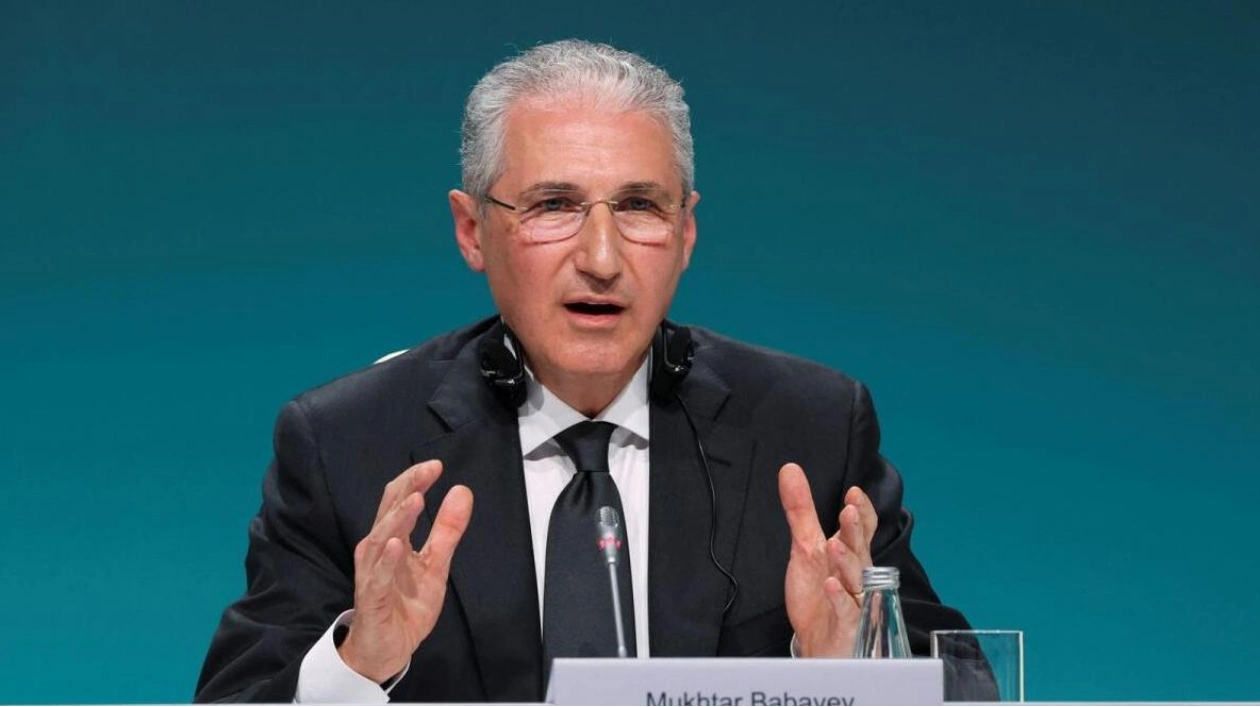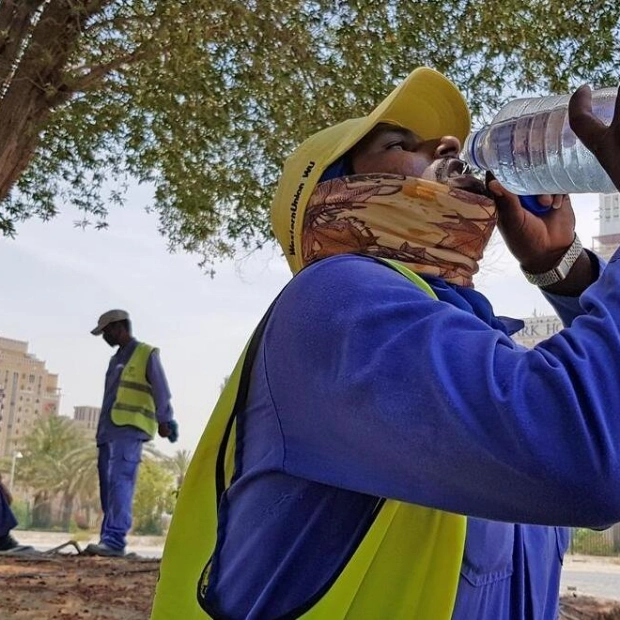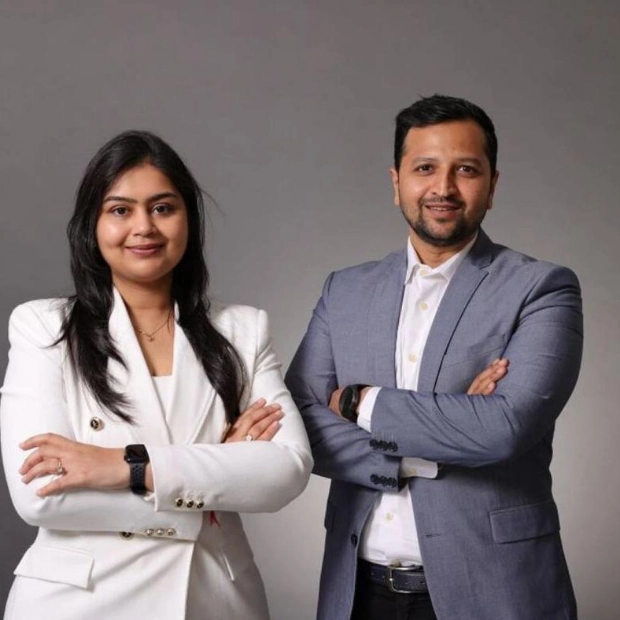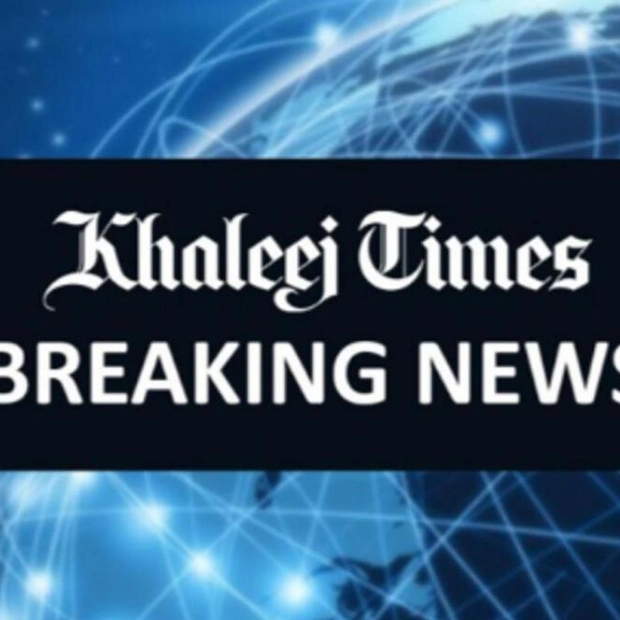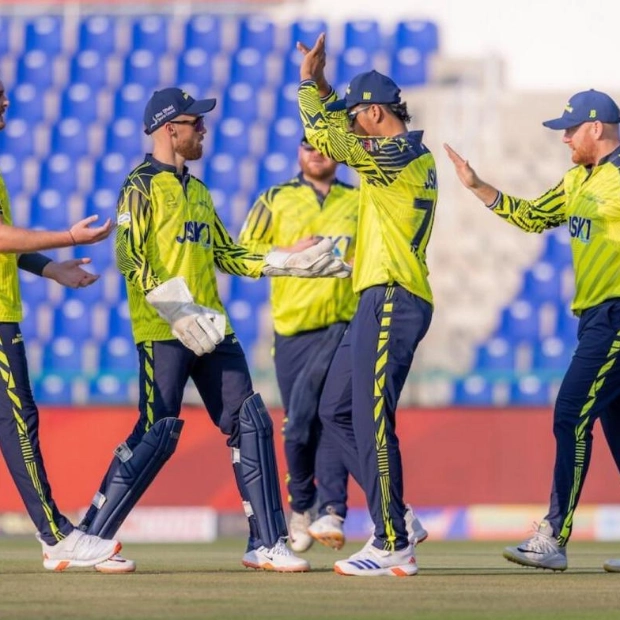COP29 President Mukhtar Babayev addressed a press conference in Baku, Azerbaijan, on Monday. REUTERS
The UN's climate chief urged countries at the stalled COP29 summit on Monday to 'cut the theatrics' as pressure intensifies on G20 leaders to achieve a breakthrough. As the UN climate talks enter a second week in Azerbaijan, the world remains far from a financial agreement for poorer countries, which will determine the success or failure of COP29. UN climate boss Simon Stiell criticized 'bluffing, brinkmanship, and premeditated playbooks' for consuming valuable time and diminishing goodwill. 'Let's cut the theatrics and get down to business,' he told delegates gathered in a large football stadium in Baku. Nations have until Friday to resolve the deadlock over raising $1 trillion annually for developing countries to combat global warming. Pressure is growing on G20 leaders to support the stagnant process in Baku as they convene in Brazil for the annual summit of the world's largest economies and top polluters on Monday and Tuesday. 'A successful outcome at COP29 is still attainable, but it demands leadership and compromise, particularly from the G20 countries,' UN Secretary-General Antonio Guterres stated Sunday in Rio de Janeiro. COP29 president Mukhtar Babayev of Azerbaijan emphasized the critical role of G20 countries 'to demonstrate their leadership.' 'We cannot succeed without them, and the world is eagerly awaiting their response,' the former oil executive and current ecology minister told reporters. In a potential positive sign, the head of the Brazilian delegation to COP29, Andre Aranha Correa do Lago, departed Baku to prepare for the G20. A dispute is also brewing at COP29 over whether countries should reaffirm last year's landmark commitment to transition away from fossil fuels. Saudi Arabia has been accused of hindering efforts to address this and other measures to curb record-high greenhouse gas emissions. The primary objective at COP29 is negotiating a new agreement to provide developing countries with sufficient funds to reduce emissions and build resilience against escalating climate impacts. Rei Josiah Echano, disaster chief in the typhoon-ravaged Philippines province of Northern Samar, called for 'radically fast-tracking' the talks to assist those in urgent need. Developing countries, excluding China, will require $1 trillion annually in external aid by the end of the decade, according to independent economists commissioned by the United Nations. Stiell noted that it is 'easy to become slightly numb' to the figures. 'But let's never forget: these numbers represent the difference between safety and catastrophic disasters for billions of people,' he said. 'It certainly keeps me awake at night.' Climate-vulnerable countries are pressing developed nations to significantly increase their existing pledge of $100 billion annually. However, donors argue they cannot raise the funds alone, and the private sector must also participate. The United States and European Union also urge wealthy emerging economies, notably China, to share the burden. 'With affluence comes responsibility. Others have a responsibility to contribute based on their emissions and economic growth,' EU climate commissioner Wopke Hoekstra stated in Baku. 'The EU remains the largest contributor to international climate finance and will 'continue to lead,' Hoekstra added. Yet, the 27-nation bloc faces political and budgetary pressures, and could be vulnerable if the United States under Donald Trump refuses to contribute. The conference commenced under the shadow of Trump's re-election bid and suffered a setback when Argentina's delegation withdrew from the summit. Azerbaijan, lacking global diplomatic experience, is seen as needing crucial leadership to navigate the challenging negotiations. 'We do require a presidency to lead and guide us toward a safe resolution,' Hoekstra said. Azerbaijan's president, Ilham Aliyev, faced criticism for defending fossil fuels and criticizing France over its colonial history.
Source link: https://www.khaleejtimes.com
